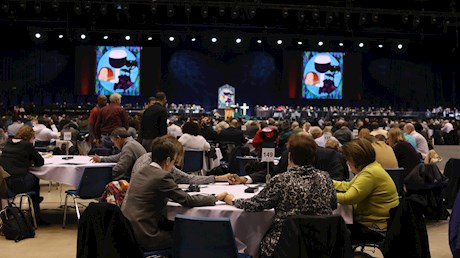The COVID-19 pandemic has changed how Italian Christians pray and live their faith, amid a nation reeling from 7,500 deaths—the highest tally in the world—among 74,000 confirmed cases (second only to China).
During the lockdown, we can no longer gather on Sundays or in-home groups. Social gatherings, travel, and weddings are suspended, as are most businesses. If someone is caught outside their home without a valid reason, there can be a heavy fine.
But this season of exile has helped us discover three facets of prayer we often neglect in times of abundance.
1) Prayer of Lament
Psalms of lament often felt hyperbolic a month ago. For example, Asaph’s complaint that God has made his people “drink tears by the bowlful” could seem overdramatic; David’s cry to God of “How long will you hide your face from me?” was a distant feeling.
But as humanity struggles to contain a fear- and anxiety-provoking pandemic, lament feels newly relevant to all of us. In March 2020, Psalm 44 now sounds pitch-perfect:
Awake, Lord! Why do you sleep?
Rouse yourself! Do not reject us forever.
Why do you hide your face
and forget our misery and oppression?We are brought down to the dust;
our bodies cling to the ground.
Rise up and help us;
rescue us because of your unfailing love.
Few Western Christians have experienced poverty, injustice, or persecution. Consequently, our worship usually reflects the moods of resourceful individuals in times of prosperity and peace: composed and mainstream. We do suffer individually; however, seldom is our corporate worship fueled by protest and mourning before God.
Lament is suffering turned into prayer. It’s the worship of people who feel out of balance and out of place. Historically, …
News brought to you by Christianity Today




